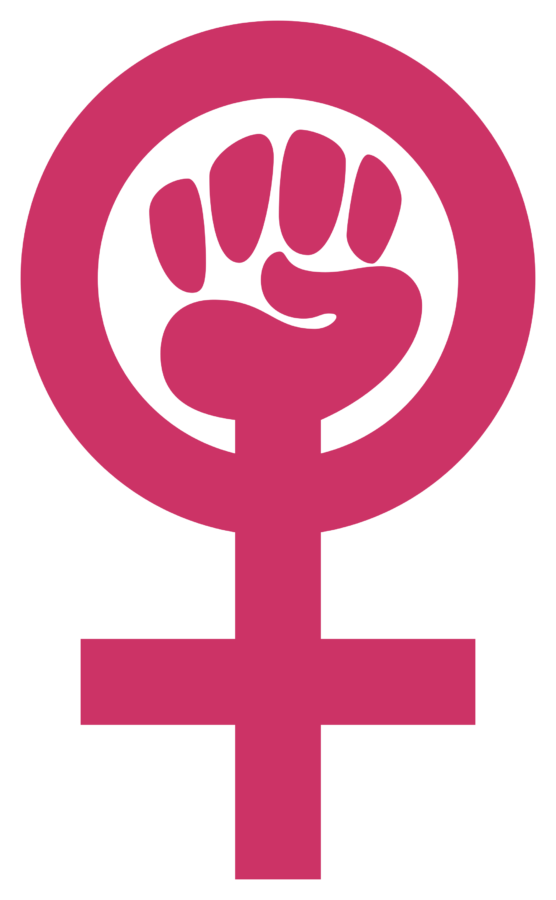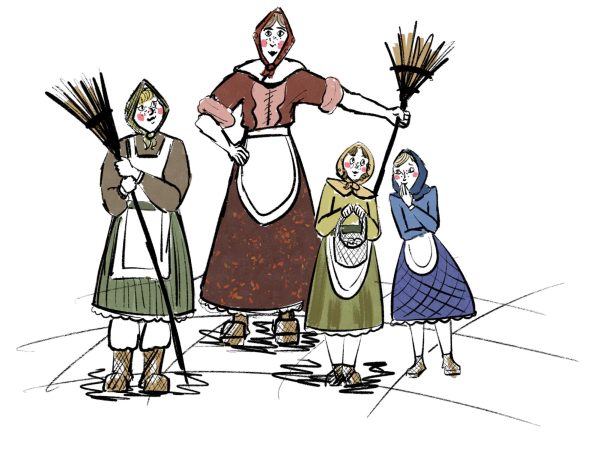Why We Still Need Feminism
April 28, 2017
The idea that feminism has already served its purpose in our society and should be quietly put to bed is not a new one. In fact, ever since women have been fighting for their equality with men, they have been told that they have no right to complain. Modern-day feminism has even been accused of advocating the victimization of women and the vilification of men, but this is simply incorrect. The one goal of the movement is to reach a world in which every person has equal opportunities and rights, regardless of their gender, and this is an objective that has not yet been fulfilled.
It seems fitting to begin this article by discussing the wage gap, which is defined as the difference in pay between a man and a woman occupying the same job and operating at the same skill level. Since John F. Kennedy signed the Equal Pay Act in 1963, many people have insisted that the wage gap no longer exists; after all, it is technically illegal. However, according to a recent report published by the staff of the Joint Economic Committee Democrats, “in many professions, women continue to be paid less for doing work that is substantially the same as work done by men. For example, among nurses, women make 90% of what men typically make; among lawyers, women make 83% of what men make; and among financial managers, women make roughly 67% of what men make.” Several studies have also shown that women of minorities, such as African-American women and Hispanic women, are affected even more greatly by the wage gap than white women. Average statistics don’t capture the full scope of the workplace inequality that feminists are trying to eradicate.
Besides being unfairly compensated for their work, women face many other daily injustices that they are encouraged to shrug off as a natural part of life. No matter a person’s gender, they do not deserve to be accosted in the street with catcalls, nor do they deserve to be touched inappropriately by coworkers or fellow students. Yet, this is the type of occurrence that even teenage girls know they may have to face when they get up in the morning. Feminism is working to stop sexual harassment of all kinds so that women can feel safe and comfortable in their own skins.
The U.S. Draft and Selective Service is another issue that is frequently brought up during anti-feminist discussions. As of now, there is no legislation requiring women to register for the draft, which many people point to as an example of women being given preferential treatment based on their femininity. However, it is important to recognize that the Selective Service System was officially established in 1940, by a Congress that included only nine women. Clearly, feminists were not behind the decision to exclude women from the draft. That choice can be attributed to the sexist idea that women were weaker than men, which was still widely accepted in 1940. Feminists now are rightfully enraged by the fact that, historically, women have been treated as fragile children. Today, we hope that this stereotype can die, and while many feminists are in favor of the draft being extended to women, others advocate for the elimination of the draft altogether.
Many modern feminists are told that their work is unimportant because of the freedoms that women now possess in first-world countries like the United States, Great Britain, and Canada. However, feminism is the fight for global equality, meaning feminists in any country will not be satisfied until women worldwide are liberated. Horrifying as it may be, an estimated 4.5 million people are currently victims of the sex trade, and around 98% of these people are women and girls (according to statistics from Equality Now and The International Labor Organization). This is one of the most urgent examples of why feminism is still undeniably necessary in our world.
The feminist movement is not perfect as it stands; it is true that there are things we can improve. As we work for worldwide equality, we can make our feminism more supportive of the LGBTQ community, more respectful of the right to practice or not to practice any religion, more inclusive of the voices and desires of minority feminists, and overall more intersectional. There is one improvement to modern feminism that anyone can make: simply joining in.






























